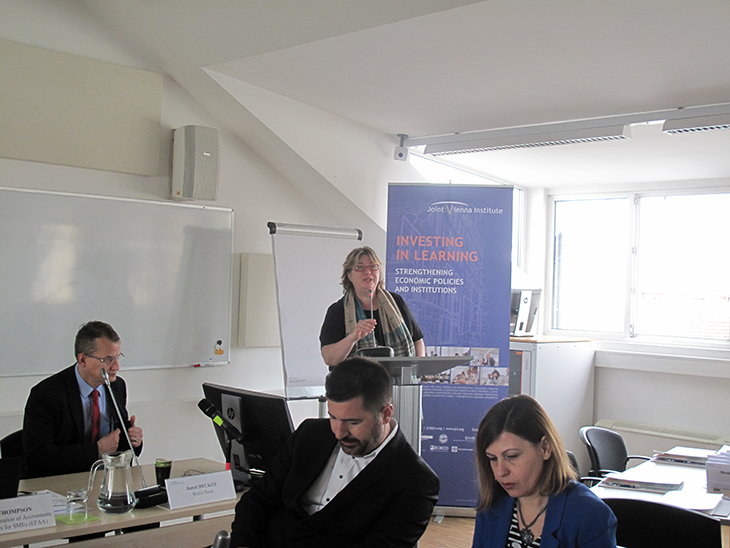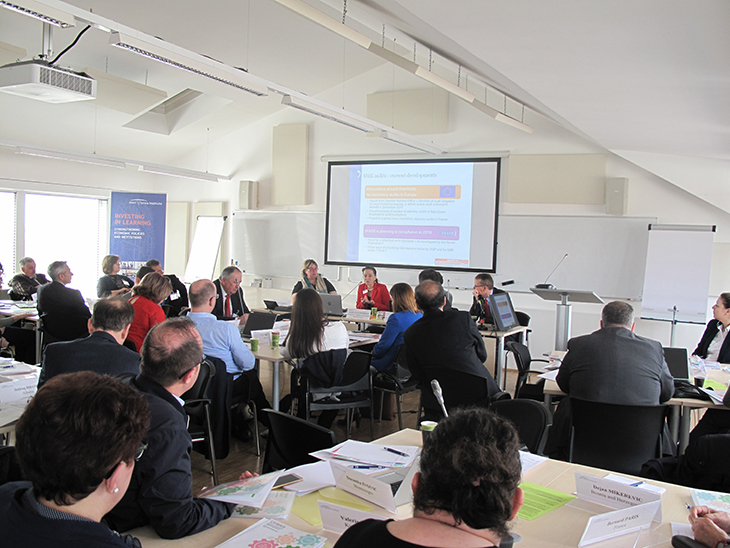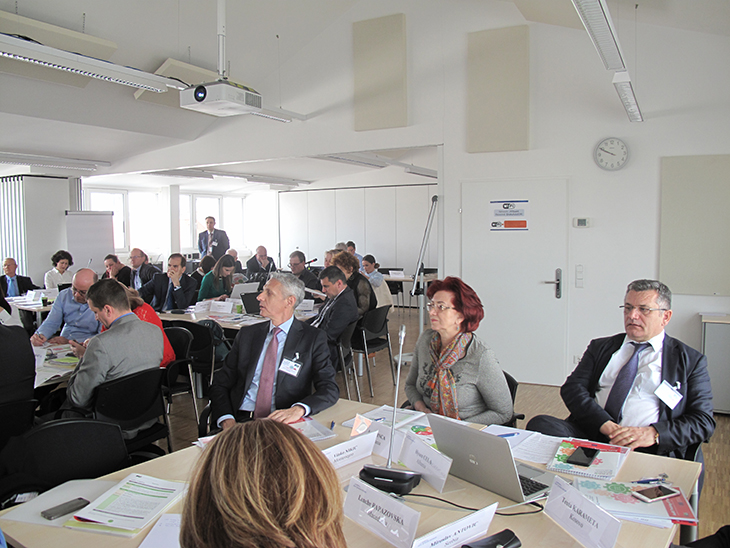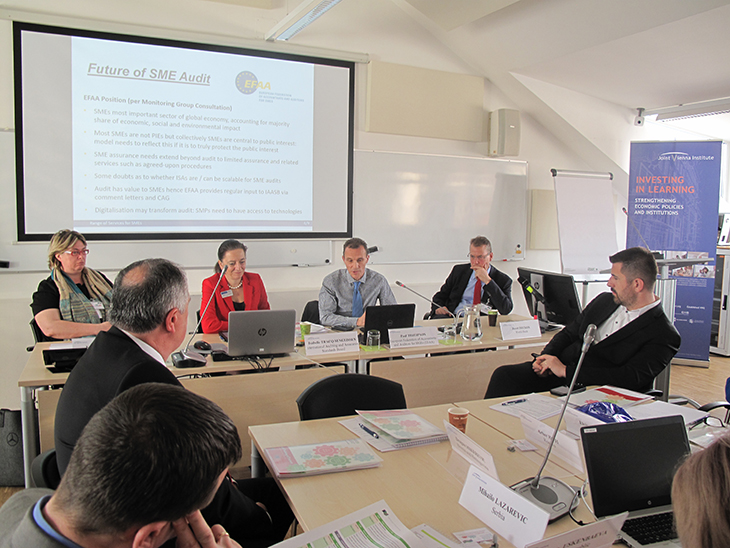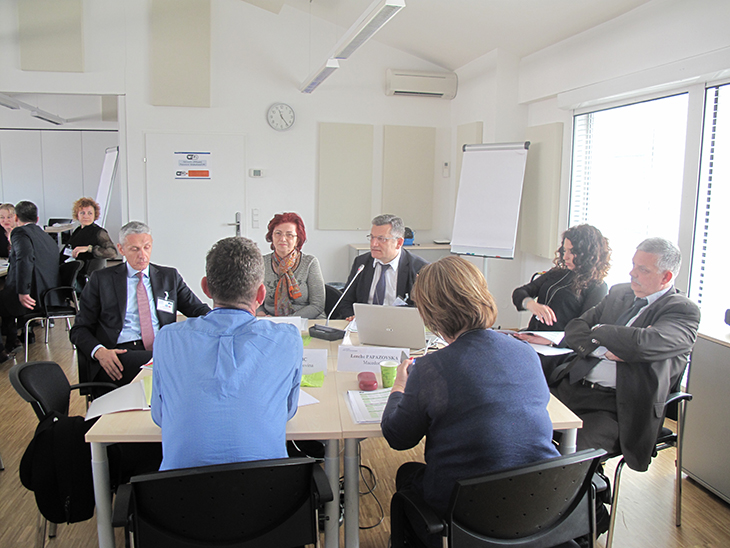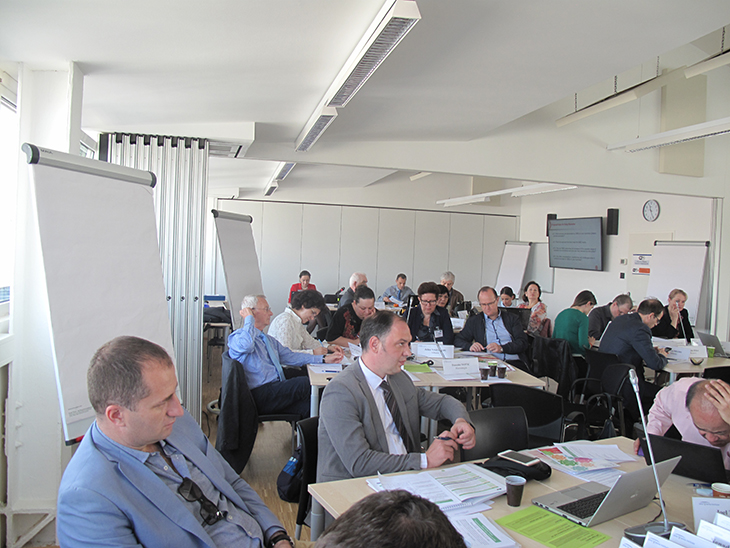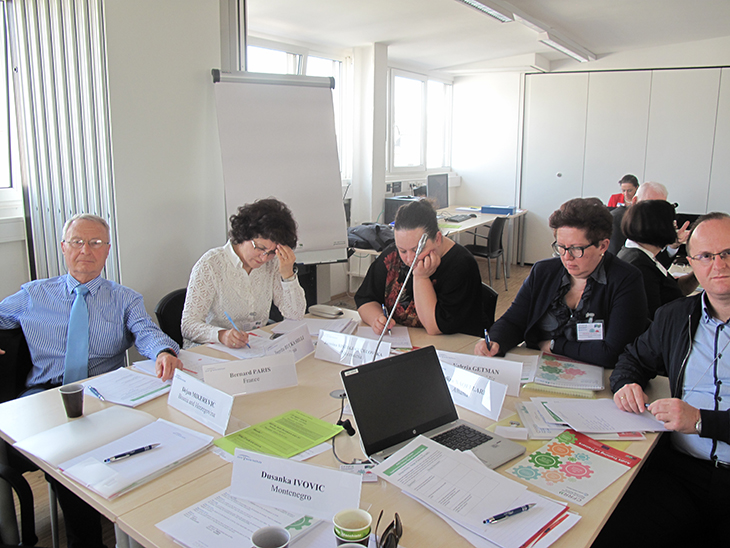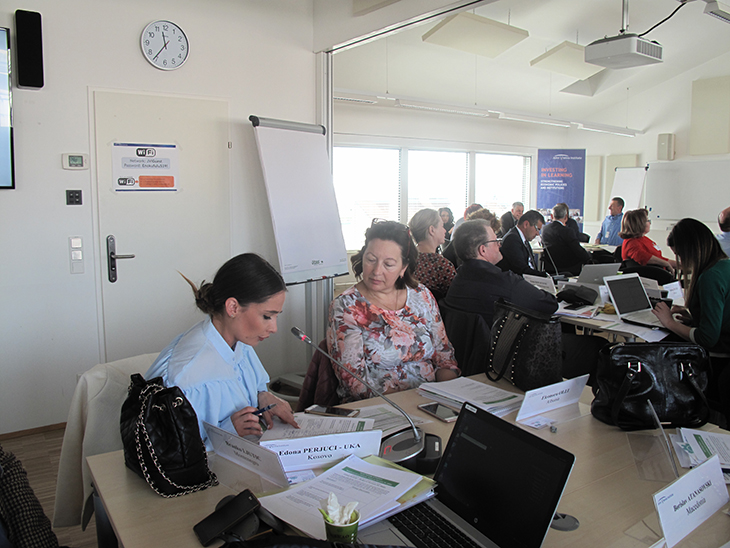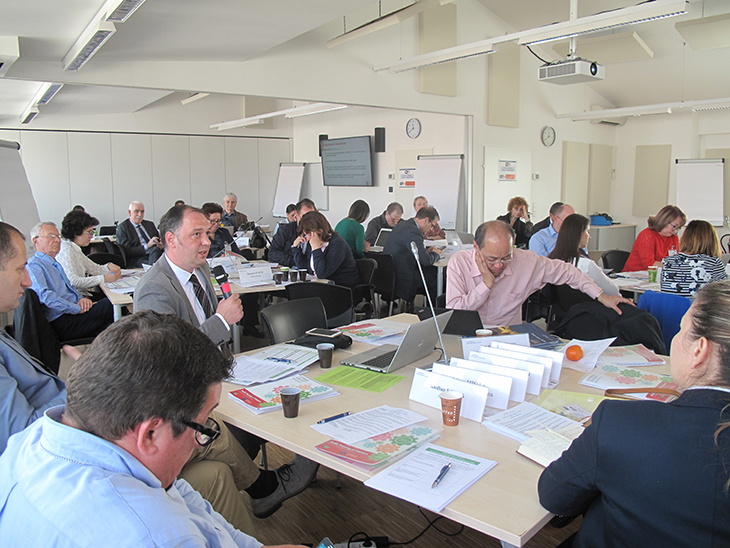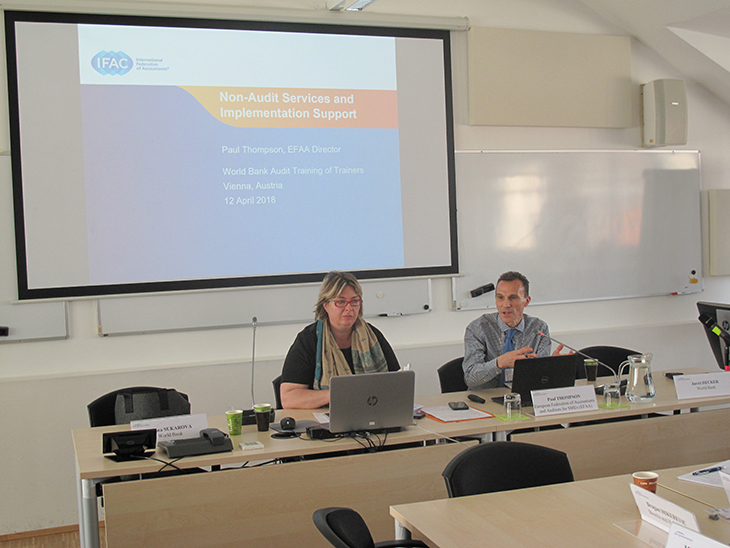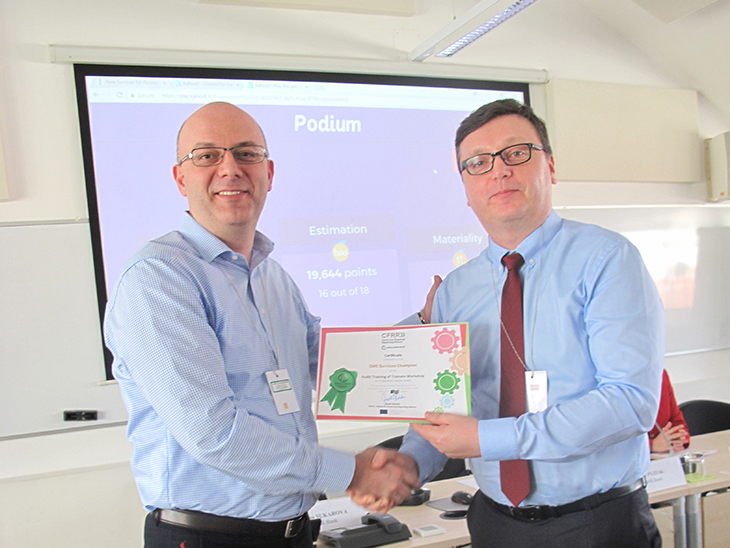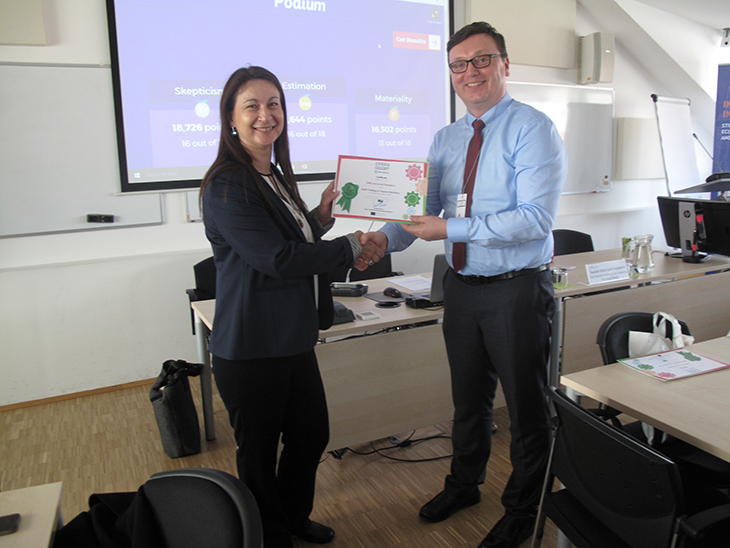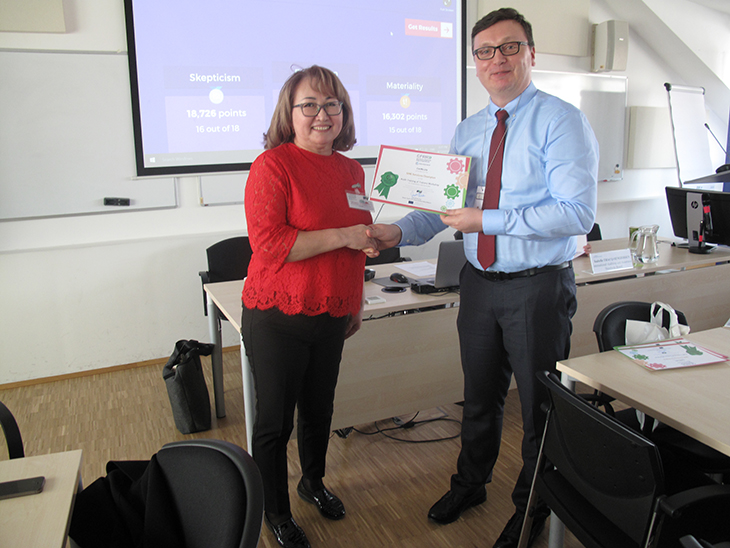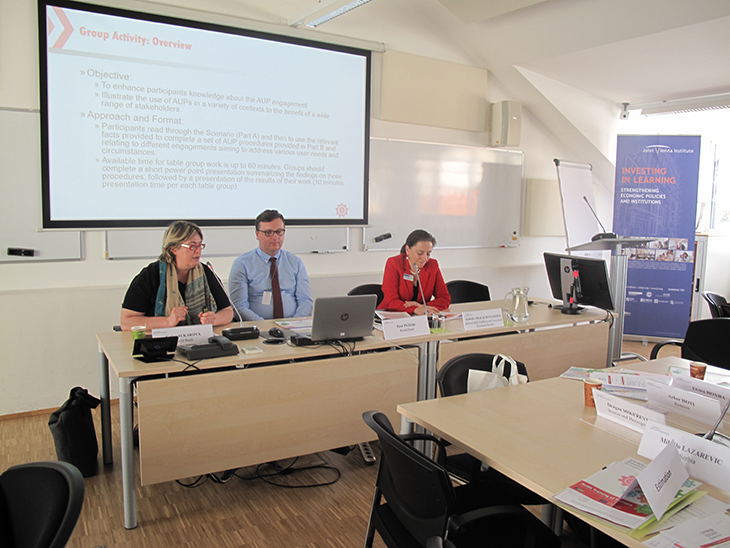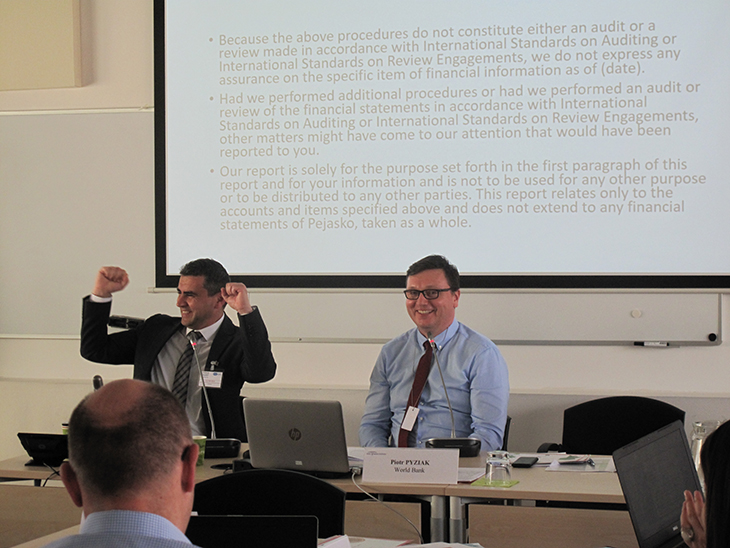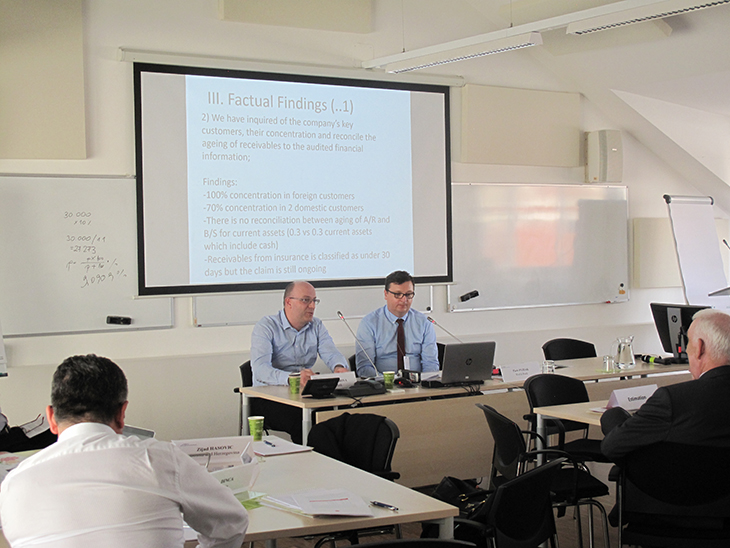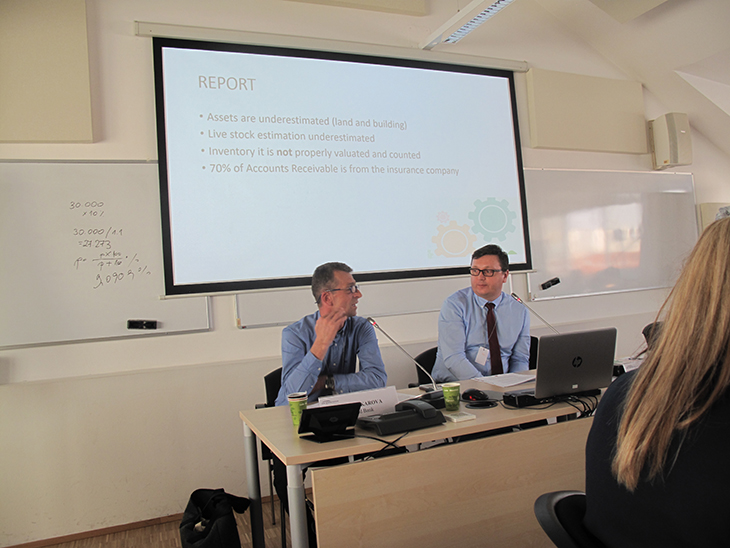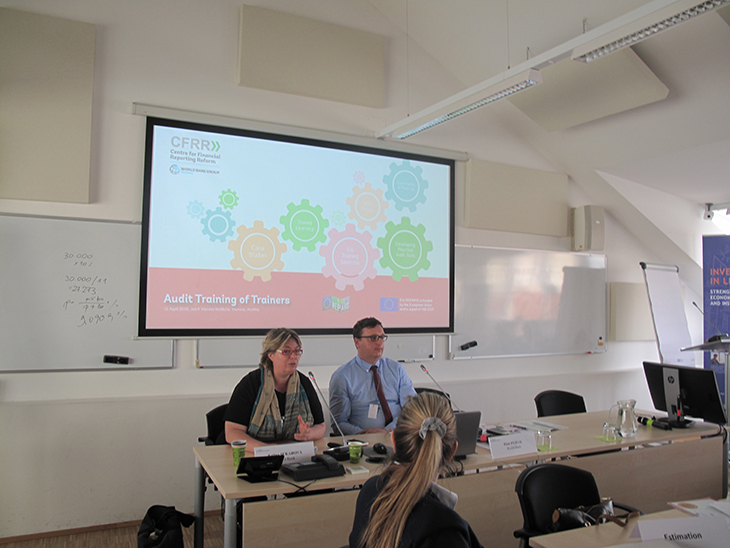Objectives
The overall aim of the Audit Training of Trainers workshops is to increase the audit profession's capacity to deliver high-quality training and continuing professional development (CPD) programs based on the Standards of the International Auditing and Assurance Standards Board® (IAASB®). In particular, the workshop series focuses on the needs and challenges of Small and Medium-sized Practices (SMPs) to implement International Standards.
This workshop is a Supplementary Module that Focuses on Services for small and medium sized enterprises (SMEs). The Audit Training of Trainers program is conducted with the support of the International Federation of Accountants® (IFAC®). The workshop was supported by the IAASB and the European Federation of Accountants and Auditors for SMEs (EFAA).
Range of Services for SMEs
IFAC research has indicated a growing demand for non-audit services that presents a potential opportunity for SMPs worldwide. Understanding the range, requirements and benefits of available professional services is essential for practitioners to be able to tailor the various services to meet the needs of their SME clients, as well as helping them choose the right service. Participants were reminded of IFAC’s recently launched 2018 Global SMP Survey and invited to visit available online resources at IFAC’s Small and Medium Practices webpage section.
Kalina Sukarova, Senior Financial Management Specialist, CFRR, discussed the recent CFRR publication Small and Medium Practices: The Trusted Advisors of SMEs, which describes the range of professional services available that are more naturally suited to the SME profile and which also provides guidance that might be useful for practitioners, SMPs and professional accountancy organizations (PAOs) as they support their members during the transition from traditional compliance providers to trusted advisors of SMEs.
A panel composed of speakers Isabelle Tracq-Sengeissen, Board Member, International Auditing and Assurance Standards Board (IAASB) and Paul Thompson, Director, European Federation of Accountants and Auditors for SMEs (EFAA) spoke about the range of services for SMEs evolving in Europe and worldwide. Participants had an opportunity to learn about the standard on “Presentation Engagement” that is unique for France, discuss aspects of SME assurance engagements, such as the Denmark standard of extended review, and the Nordic countries initiative for introducing a SME standard for audits.
IAASB Activities in Respect of Services Other than Audits
In line with its strategic goal of ensuring that standards evolve in order to address the emerging needs of stakeholders for services other than audits, the IAASB has issued several discussion papers related to services other than audits, including on Emerging Forms of External Reporting and on Exploring the Demand for Agreed-Upon Procedures Engagements and Other Services, and the Implications for the IAASB’s International Standards. Isabelle Tracq-Sengeissen, Board Member, IAASB discussed the IAASB activities related to services other than audits and provided further insights on the ongoing IAASB projects in this area.
Reviews, Agreed Upon Procedures and Compilations
Paul Thompson, Director, EFAA spoke about the growing demand for non-audit services, such as reviews, agreed-upon procedures and compilation engagements, which can generate new opportunities for professional accountants. The session provided an overview and comparison of each of these service, and presented available IFAC resources to support the implementation of these services.
Group Activity: Agreed Upon Procedures (AUP) Engagements
Participants engaged in a mini case study that built further on the scenario of the case study PejaSkop that is being used through the Audit ToT series and focused on Agreed Upon Procedures (APU) Engagements. The AUP engagement can be used in a variety of circumstances that involve both financial and non-financial information engagements and cover public and private sector entities. The objective of this group exercise is to enhance participants knowledge about the AUP engagement and illustrate it’s use in a variety of contexts to the benefit of a wide range of stakeholders.
Participants had been presented a short scenario based on the facts of the integrated case study “PejaSko” and asked to deliver a short presentation on the findings of their AUP engagements. Each group worked on a different AUP engagement, including:
- Buyers Due Diligence;
- Sellers Due Diligence;
- Compliance with financial covenants of a borrowing agreement for lenders;
- Report for Minority Shareholders on specific items of the financial information; and
- Report to Donor agency on financial and non-financial aspects of a grant.
Disclaimer: This webpage was created and maintained with the financial support of the European Union. Its contents are the sole responsibility of CFRR and do not necessarily reflect the views of the European Union.
Small- and medium-sized practices (SMPs) have an important role to play in supplying professional services to their small- and medium-sized enterprise (SME) clients. Understanding the range, requirements and benefits of available professional services is essential for practitioners and SMPs to be able to tailor the various services to meet the needs of their SME clients, as well as helping them to choose the right service for their needs. This publication provides guidance that might be useful for SMEs, practitioners, SMPs and professional accountancy organizations (PAOs) as they support their members during the transition from traditional compliance providers to trusted advisors of SMEs.
The Agreed-Upon Procedure (AUP) engagement can be used in a variety of circumstances that involve both financial and non-financial information engagements and cover public and private sector entities. More recently, due to the increasing audit thresholds for smaller entities, the AUP engagement may affect the demand of stakeholders seeking alternatives to audit, such as lenders, and because of the flexibility this type of engagement offers, it can be tailored to different circumstances and focused on individual items of financial data.
The objective of this group exercise is to enhance participants knowledge about the AUP engagement, illustrate it’s use in a variety of contexts to the benefit of a wide range of stakeholders and enhance participants skills related to preparation and presentation of reports on factual findings.
